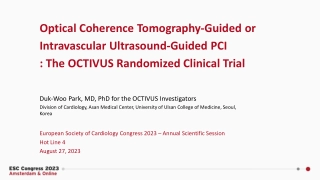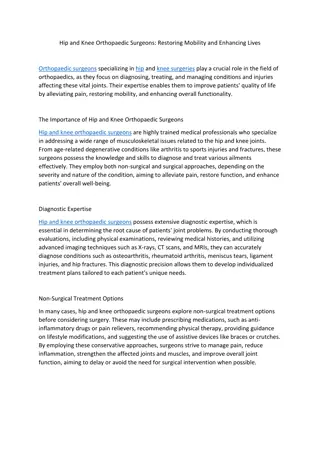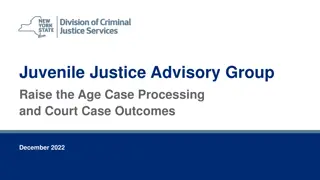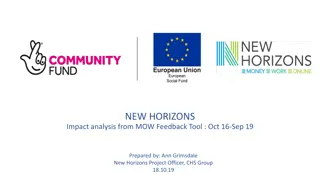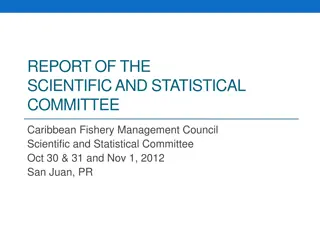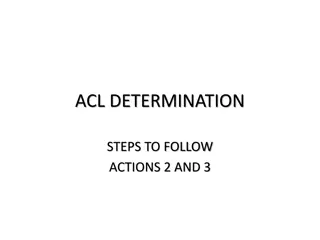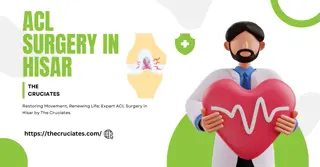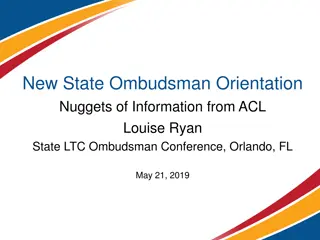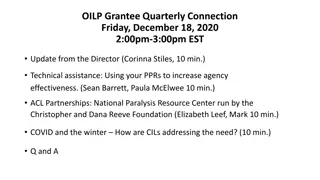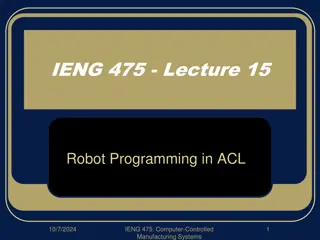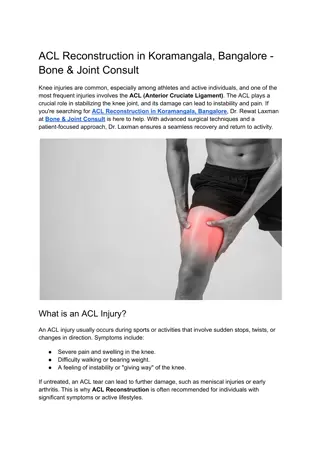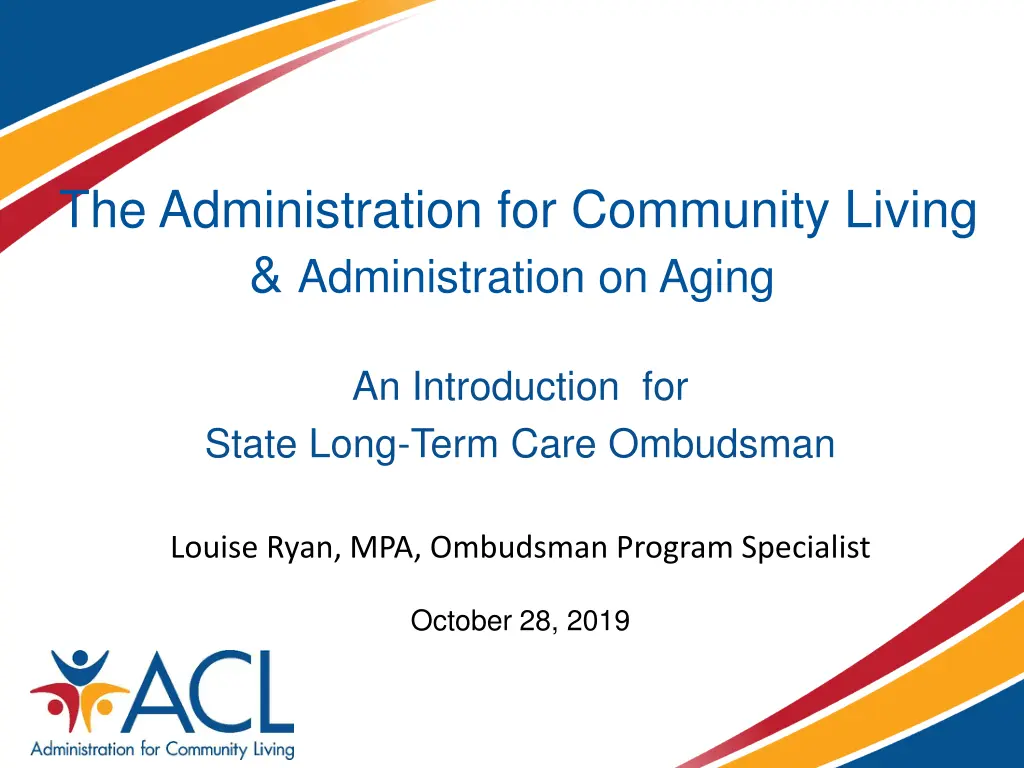
Overview of the Administration for Community Living and Aging
Learn about the Administration for Community Living and the Administration on Aging's mission to maximize the well-being of older adults and people with disabilities. Explore the structure, programs, and leadership of the ACL/AoA, providing valuable insights for State Long-Term Care Ombudsmen. Discover the diverse range of programs and initiatives under ACL's purview, aimed at promoting independence and health across the lifespan.
Download Presentation

Please find below an Image/Link to download the presentation.
The content on the website is provided AS IS for your information and personal use only. It may not be sold, licensed, or shared on other websites without obtaining consent from the author. If you encounter any issues during the download, it is possible that the publisher has removed the file from their server.
You are allowed to download the files provided on this website for personal or commercial use, subject to the condition that they are used lawfully. All files are the property of their respective owners.
The content on the website is provided AS IS for your information and personal use only. It may not be sold, licensed, or shared on other websites without obtaining consent from the author.
E N D
Presentation Transcript
The Administration for Community Living & Administration on Aging An Introduction for State Long-Term Care Ombudsman Louise Ryan, MPA, Ombudsman Program Specialist October 28, 2019
Welcome! Introductions Purpose of Call: To give new State LTC Ombudsmen an overview of the role of the Administration for Community Living and the Administration on Aging To discuss what State Ombudsmen can expect from ACL/AoA Provide an opportunity for Question & Answer
ACL Mission Maximize the independence, well-being, and health of older adults, people with disabilities across the lifespan, and their families and caregivers.
Administration for Community Living An operating division within the Department of Health and Human Services formed in April 2012 Administration on Aging (administers the Older Americans Act) Administration on Disabilities, which includes the Administration on Intellectual and Developmental Disabilities (DD), Includes: the DD Councils Protection & Advocacy Systems Centers for Independent Living Office of the Administrator Includes 10 Regions State Health Insurance Assistance Programs (SHIP)
Administration for Community Living, continued Additional growth as a result of the Workforce Innovation and Opportunities Act of 2014 Assistive Technology (AT) Act Programs Independent Living (IL) Programs National Institute on Disability and Independent Living Rehabilitation Research (NIDILRR) Programs In addition to the group of programs listed above, ACL is also responsible for the Interagency Committee on Disability Research and the Disability, Independent Living, and Rehabilitation Research Advisory Council 5
ACL Leadership Lance Robertson - Administrator & Assistant Secretary for Aging of the Administration for Community Living/Administration on Aging (ACL/AoA). Appointed in August, 2017. Mary Lazare - Principal Deputy Administrator. Appointed in June, 2017. Edwin Walker - Deputy Assistant Secretary for Aging and Director of the Office of Long Term Care Ombudsman Programs Vacant - Deputy Administrator for Regional Operations and Partnership Development Julie Hocker, Commissioner - Administration on Disabilities
ACL Reorganization On May 9, 2019, ACL published an update to the agency's Statement of Organization, Functions, and Delegations of Authority in the Federal Register to reflect a reorganization of ACL, which took effect on May 2, 2019, and will be implemented by early August 2019.
Role of the Administration on Aging (AoA) AoA administers Older Americans Act (OAA): The OAA lays out duty and function of the Administration: serve as the effective and visible advocate for older individuals within the Department of Health and Human Services and with other departments, agencies, and instrumentalities of the Federal Government by maintaining active review and commenting responsibilities over all Federal policies affecting older individuals; Created, authorizes and funds grants to states State units on aging Area agencies on aging Aging network leverages state, local, and other funds State plans
Law, Regulation, Guidance Framework Older Americans Act Law Public Law 109-365 42 U.S. Code Chapter 35 45 CFR Part 1326 & 1328 (Title VI) 45 CFR Parts 1321 and 1324 Titles (III & VII) 45 CFR Part 1321 (Title III) Regulation Data Collection i.e. (NORS) Program Instructions Guidance Letters to states
The Older Americans Act Title I Objectives Title II Administration on Aging Title III Grants for State & Community Programs Title IV Training, Research and Discretionary Title V Senior Community Service Employment Title VI Grants for Native Americans Title VII Elder Rights Protection 10
OAA funded programs OAA funds services to individuals age 60+, including: In-home services and supports Nutrition services (congregate and home-delivered meals) Senior centers Caregiver support Services to tribes (American Indians, Alaskan Natives, and Native Hawaiians) Elder rights services, including LTC Ombudsman
Older Americans Act -Title III B Social Services (Title III-B): (e.g., Adult Day Service, Transportation, Case Management, Legal Assistance, Chore, Homemaker, Personal Care) Nutrition (Title III-C): (e.g., Congregate & Home-delivered Meals) Health Promotion/Disease Prevention (Title III-D): Evidence-based programs Family Caregiver Support Program (Title III-E): (e.g., Counseling, Education, Respite, Gap Filling or other Supplemental Services) Eligibility for Title III-B, III-C & III-D, generally 60+ 12
National Ombudsman Resource Center OAA requires AoA to establish and operate -- provide training, technical assistance, and information to State Long-Term Care Ombudsmen, representatives of the Office & local entities; analyze laws, regulations, programs, and practices; and provide assistance in recruiting and retaining volunteers by working with other organizations that have a successful record in recruiting and retaining volunteers. 13
How ACL/AoA relates to your work AoA helps states understand and implement the Older Americans Act (OAA) through: Issuing grants to states (formula grants under OAA) Reviews and approves the State Plan on Aging Program guidance and interpretations Technical assistance and/or other intervention when issues arise Evaluation of OAA Programs Providing a framework for the National Ombudsman Reporting System Funding technical resource centers
AoA Program Guidance and Interpretation Older Americans Act provisions, especially Section 712 Regulation 45 CFR Part 1324 More information, resources and Frequently Asked Questions can be found at: https://acl.gov/programs/Protecting-Rights-and- Preventing-Abuse/Long-term-Care-Ombudsman-Program National Ombudsman Reporting System (NORS) Letters to States
AoA Program Guidance and Interpretation, page 2 Program Instructions (PIs) Examples relative to LTC Ombudsman Program Certification of minimum funding requirements (annually) Appropriate use of Title VII funds State Plan requirements 16
ACL - Center for Regional Operations Serves as the liaison, advocate and representative for the agency regionally across the United States for all of ACL s programs. Includes working with and connecting stakeholders to other HHS divisions/federal agencies to help advance the development of programs and activities serving older adults, persons with disabilities and their caregivers.
Office of Long-Term Care Ombudsman Programs OLTCOP is organizationally housed within the Administration on Aging and the Office of Elder Justice and Adult Protective Services Edwin Walker serves as the Director of Office of LTC Ombudsman Programs Hilary Dalin Director of Office of Elder Justice & APS Louise Ryan, Ombudsman Program Specialist
Office of Long-Term Care Ombudsman Programs, page 2 Support State program operations Programmatic lead for National Ombudsman Reporting System (NORS) Project Officer for National Ombudsman Resource Center 19
Current OLTCOP Activities Office of Performance and Evaluation 1. Completion of the Older Americans Act Performance System (OAAPS) which replaces the Ombudsman Reporting Tool OAAPS is final and live effective October 1, 2019 All state Ombudsmen should have received user access information. 2. NORS Revised Data Collection Effective October 1, 2019 Developed training with Ombudsman Resource Center (NORC) https://ltcombudsman.org/omb_support/nors/revised-nors-data- collection
Current OLTCOP Activities, page 2 Office of Performance and Evaluation, con t. 3. NORC University of Chicago completed a LTC Ombudsman Program Evaluation Study Design is completing a process evaluation and is starting outcomes evaluation 4. Small study to review promising practices in providing Ombudsman services to tribal elders 5. Preparation of materials on AGID to promote the LTCOP Webinar tomorrow Data Stories https://agid.acl.gov/ 21
Current OLTCOP Activities, page 3 OLTCOP and Office of Elder Justice/APS Legal assistance (IIIB and Legal Assistance Developer) coordination in support of LTCO s Elder Justice Coordinating Council Meeting coming up in December Other ACL Centers & federal partners: ACL Administration on Disabilities: Protection and Advocacy Systems Continued work with CMS on nursing home initiatives and Home & Community Based Services implementation Department of Justice Elder Justice Task Forces 22
LTC Ombudsman Programs Rule: Table of Contents 45 CFR 1324 1324.1 Definitions 1324.11 Establishment of the Office of the State Long- Term Care Ombudsman 1324.13 Functions and responsibilities of the State Long- Term Care Ombudsman 1324.15 State agency responsibilities related to the Ombudsman program 1324.17 Responsibilities of agencies hosting local Ombudsman entities 1324.19 Duties of the representatives of the Office 1324.21 Conflicts of interest 23
Why Have a Rule? Over the years state Ombudsman reported frequent challenges with their ability to fulfill role as required by OAA: An independent problem-solver focused on individual resident interests Ability to perform effective system-level policy advocacy Ability to communicate to the general public and media Full-time position Designate individuals (and local entities) Relationship with local Ombudsman entities Confidentiality of Ombudsman information Access to adequate legal counsel The rule addresses many of those identified issues 24
National Ombudsman Reporting System (NORS) Data elements that LTC Ombudsmen are required to collect Sec 712(h) (1)- (3)(b) Cases, Complaints Types of Complaints and outcome (resolution) Funds Expended and sources Conflicts of Interest Staff FTE Numbers of Volunteers and hours Activities: Information & Assistance, Training, facility visits, resident and family councils Systems issues and complaint narrative
What should a State Ombudsman Expect from the ACL? You should expect us to: - Help you be able to do your job as a problem-solver for LTC residents - Provide technical assistance regarding NORS, fiscal questions and interpretation of the OAA and LTCO regulations - Represent the LTC Ombudsman Program at the federal/national level - Represent the interests of residents to other federal agencies - so keep us informed!
Our nation has been conducting investigations, passing new laws and issuing new regulations relative to nursing homes . . . . If the laws and regulations are not being applied to [the individual], they might just as well not have been passed or issued. - Arthur S. Flemming, 1976 U.S. Commissioner on Aging
Contact information: Louise Ryan Administration for Community Living 330 C Street SW Washington, DC 20201 (202) 795-7355 Louise.ryan@acl.hhs.gov
Questions 29


